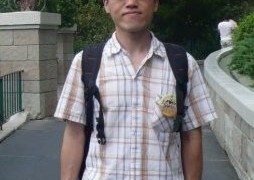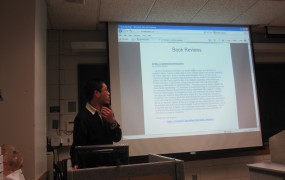How many languages should a linguist speak?
Wednesday, December 23rd, 2009 @ 1:21AM
“Oh, you’re a linguist! How many languages do you speak?”
–Article by Dong-yi Lin
“What’s your major?”
“Linguistics.”
“So how many languages do you speak?”
“Well, ah, mmm, you know, ……”
This constructed dialogue depicts a scenario that many linguistics students have encountered or will eventually encounter in life. As modern linguistics is a relatively new field of study, especially compared with other disciplines of science, it is understandable that most laymen have no idea about the essence of linguistics. One of the most common misconceptions of linguistics is that linguists must speak many languages. Whenever a friend asks me how many languages I speak after knowing that I study linguistics, I always attempt to explain to them what type of research linguists are doing. However, their perplexed facial expressions suggest that I fail to convince them that linguists are not necessarily polyglots. Sometimes I think maybe I should just provide them with the answer that they want to hear: “I can speak eight languages, including Mandarin Chinese, Taiwanese, English, French, Japanese, Saisiyat, Kavalan, and Amis.” This of course is misleading since having done research or fieldwork on a language does not mean that I can speak that language.
Another misconception of linguistics, especially in Asian countries, is to associate linguistics with English teaching or excellent English abilities. It is undeniable that English teaching, or Second Language Acquisition, in general, is an important sub-field of applied linguistics. Linguistics nevertheless encompasses a much wider variety of research areas. The reason why laymen in Asian countries misconceive linguists as successful English learners might be attributed to the origin of contemporary linguistics. Linguistics is inextricably linked to the English language, whether you like it or not, as most well-known pioneers of contemporary linguistic theories are native speakers of English. That is why in Taiwan, where no universities currently confer a Bachelor’s degree in linguistics, undergraduate linguistics courses are usually offered by English departments. However, to the surprise of most laymen, the ability to speak a second language, like English, well is not equivalent to the ability to analyze a language from a linguistic point of view. The connection between the two is merely tenuous. Having said that, speaking, or at least being able to read, English well is of great advantage to a linguist, as it enables one to be able to read current research and publications and to be able to study in Western universities.
So what on earth is linguistics? It is impossible to give a thorough and satisfactory answer to this question in a few words or sentences, due to the considerable debate over the nature of language between formalists and functionalists. Put simply, linguistics is “the scientific study of language.” The key word is “scientific.” Just like other researchers of scientific disciplines, linguists adopt a scientific approach to analyzing language. In other words, based on the linguistic data we collect, we make generalizations and form hypotheses and then further test our hypotheses against more linguistic data. More importantly, the “language” that linguists strive to understand is not any particular language like English, Chinese, or Japanese. The languages that we actually speak are the surface realizations of our “language” capacity. The ultimate goal of linguistics is to grasp and explain this “language” mechanism that is shared by all human beings. Doing analysis on a human language is the first necessary step toward achieving this long-term goal. A linguist does not need to speak all the languages in the world. The construction of a linguistic theory that can explain “language” should be viewed instead as a collaborative process, with the findings on a particular language complementing those on other languages.
Posted by floridalinguistics
Categories: Dong-yi Lin, Featured









